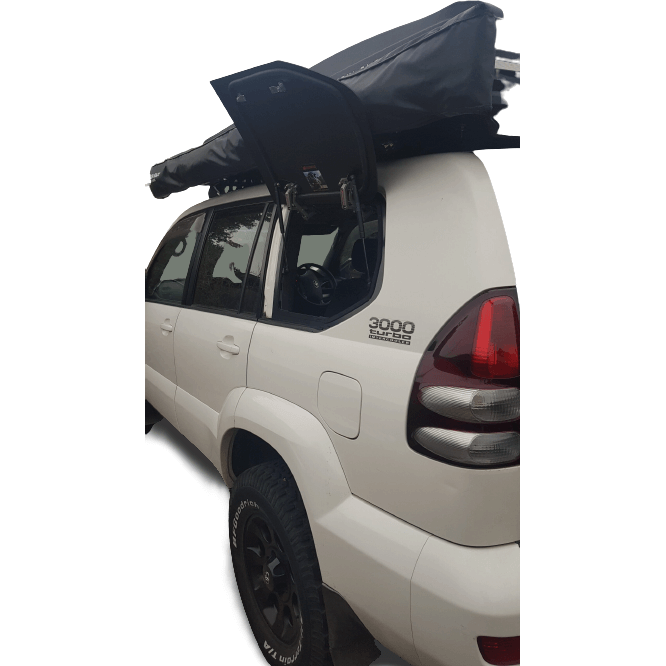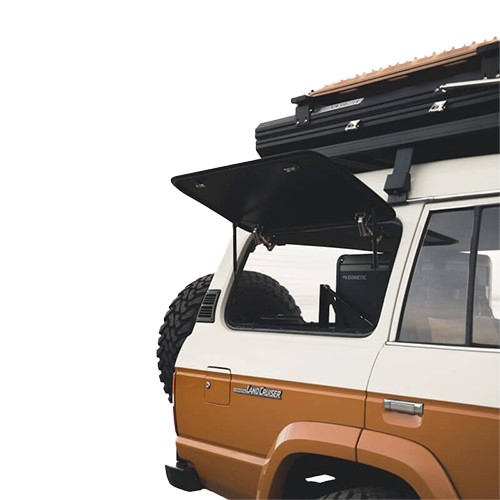Bush Survival - Techniques That Might Just Save You
The Outback’s a great place for off road adventures, but it’s not so great when something goes wrong. In fact it’s one of the harshest and most dangerous environments on the planet, so you really don’t want to get in trouble out there. The good news is that almost any problem can be handled if you know what you’re doing and have the right attitude. There are risks, but they shouldn’t stop you getting out there and enjoying yourself; just make sure you’re prepared. If something does go pear shaped here’s our guide to getting it sorted.
We mentioned the right attitude. You might remember the Hitchhiker’s Guide to the Galaxy. The thing about the Guide was that most of the stuff inside was about as useful as an ashtray on a motorbike, but there were two works of very good advice printed right on the cover – DON’T PANIC. Whatever sort of emergency you have out in the bush, panic will make it worse. Take any action you need to avoid immediate danger then stop, calm down and start making a plan. Going off half-cocked isn’t any good – you need to get organized and sort out your priorities.
The first of those priorities is water. A lot of Australia is pretty dry, and without water you’ll be in trouble quickly. Dig out all your supplies and add up how much you have, then conserve it. Drinking has to be the priority – you can’t waste any for washing or keeping cool. Instead of rationing it everyone should drink the bare minimum they need to avoid serious thirst. Reduce sweating by not doing heavy work when it’s hot – wait until the sun goes down. Look for natural sources wherever you can, but remember to purify it. Boiling for five minutes works, but the best solution is to carry a decent filter system in your wagon. Follow animal trails to find streams and water holes. If you have plastic bags and duct tape you can collect water from trees and bushes – cover a leafy branch with a bag and tape it tight round the base, and the water that evaporates will be collected in the bag. You can also dig a pit in the ground and fill it with leaves, waste water and anything else damp, put a cup in the middle, cover it with a plastic sheet then lay a small stone on the sheet right over the cup. By the time the sun goes down some water should have collected in the cup.
To boil water you’ll need a fire, and you might also want one to stay warm at night. There are a couple of ways to get one going without matches or a lighter. If you have a magnifying glass you can focus the sun onto dry tinder – dry grass or old bird’s nests are ideal. A lot of compasses have a magnifying glass built in, or you can improvise with a bit of broken bottle or somebody’s specs. Flat magnifiers that slip into your wallet are cheap and handy. The other way is to get a flat piece of wood and dig a small hole in it, fill the hole with tinder then rotate a pointed stick in it to create friction. You can do that by spinning it between your hands, but it’ll take a while. A better way is to make a bow from a thin branch and some string, loop the string round the pointy stick, hold the top end of the stick then saw the bow back and forwards. Even better, always carry a lighter.
If you’ve had a mechanical failure or a bit of a bingle, and your wagon isn’t going anywhere, you have two choices – stay with it or try to walk out. We always recommend staying with it. It provides shelter, all your gear is in there and it’s a lot easier to spot when someone comes looking for you. There might be times when that’s not an option though, and if you have to walk you’re going to need to navigate. Your standard touring maps will help you find a main road or town but only if you can work out directions, and that can be tricky if you don’t have a compass. The sun is one way to tell the direction – point the hour hand of your watch at the sun, and half way between that and 12 o’clock is north (half way between the hour hand and 1 o’clock during daylight savings time.) At night, learn to navigate by the Southern Cross.
The steps you need to take when you have an emergency depend on exactly what’s happened. If anyone’s injured they’ll need treated first – taking a day or two for a first aid course is a good idea. If your vehicle’s broken down your priority is going to be fixing it, and if you can’t manage that maybe getting on the radio and calling for help. If you stay calm and look at the situation you’ll be able to work out what needs done first. Once you have a plan get on with it, and stick to it unless the situation changes. Do that and you’ll be fine.







